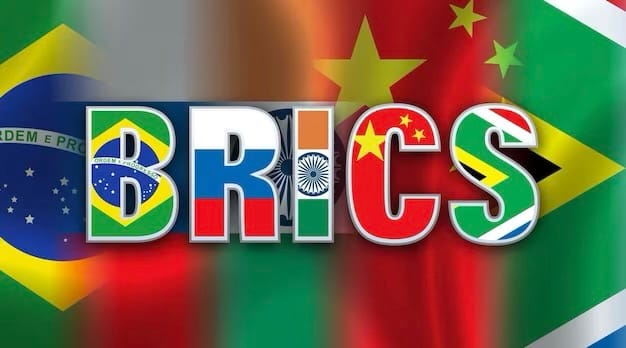BRICS at the Forefront: Shaping the Global AI Landscape
In an era where artificial intelligence (AI) is poised to redefine the global technological landscape, the BRICS bloc (Brazil, Russia, India, China, and South Africa) has taken a monumental step. Announced by Chinese President Xi Jinping at the recent BRICS Summit in South Africa, these emerging economies are forming an

In an era where artificial intelligence (AI) is poised to redefine the global technological landscape, the BRICS bloc (Brazil, Russia, India, China, and South Africa) has taken a monumental step. Announced by Chinese President Xi Jinping at the recent BRICS Summit in South Africa, these emerging economies are forming an AI study group, a decision reflecting their commitment to actively shape the future of AI.
This initiative marks a significant strategic shift. The BRICS nations, collectively home to a substantial portion of the world's population and economic output, are not just positioning themselves as participants in the AI revolution but as architects of it. The study group aims to monitor and influence the development of AI technologies, ensuring they are secure, reliable, and equitable.
The creation of this group is set against the backdrop of intensifying global competition in AI, particularly between the US and China. With the US recently imposing restrictions on investments in China’s quantum computing, advanced semiconductor, and AI sectors, the BRICS group's formation may also be seen as a strategic countermove, diversifying the AI innovation landscape beyond the traditional powerhouses of the global north.
This development holds great promise for the BRICS countries to ignite AI innovation within their borders. It offers a platform for these nations to collaborate on AI governance, share technological advances, and develop common standards, potentially leading to a more balanced and inclusive AI future.
Moreover, this initiative aligns with broader efforts to foster technological cooperation and development among BRICS nations. For instance, China's commitment to establishing a China-BRICS science and innovation incubation park aims to accelerate collaboration in AI and other areas of science and technology.
As the world anticipates the study group's formal agenda and activities, the broader implications are clear. This move represents an emerging multipolar world in technology, where influence and innovation in AI are no longer the sole domain of traditional tech giants but are increasingly shaped by a diverse group of global players. The BRICS AI study group could be a significant step towards a more inclusive and multipolar global AI ecosystem, reflecting a diversity of perspectives and priorities in shaping the technology of the future.




